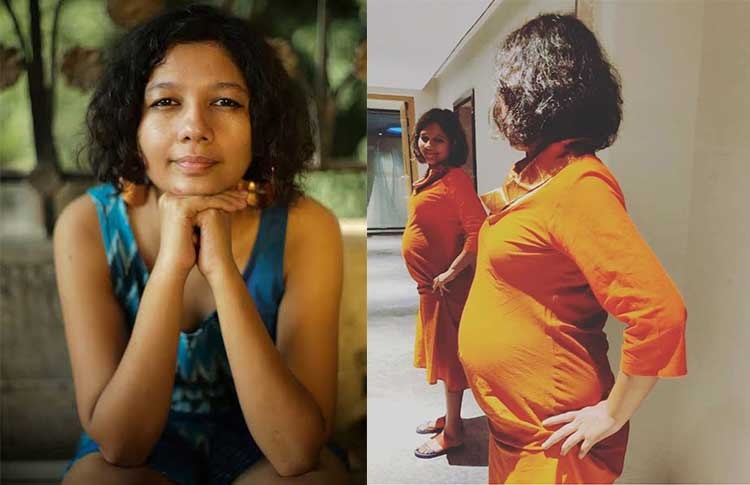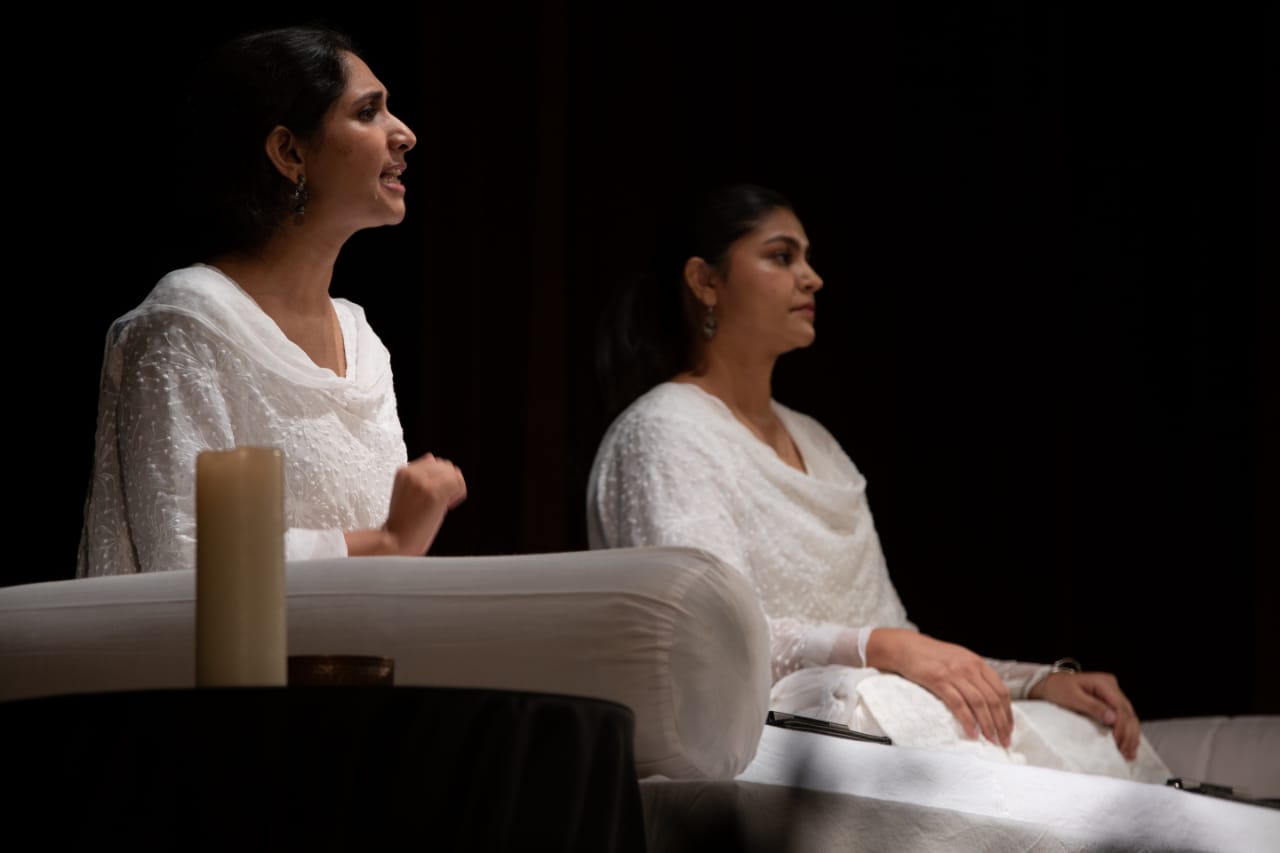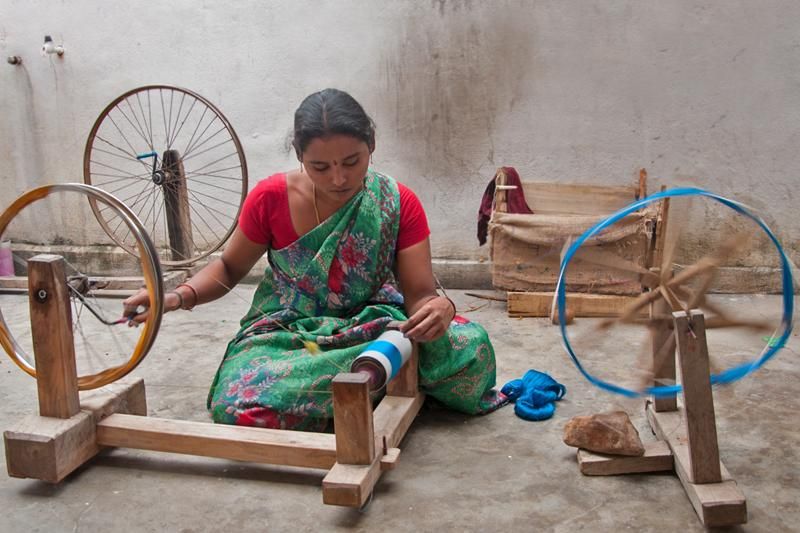Kartiki Bhatnagar Tells Us How Vitiligo Made Her “Embrace Life” More Passionately
- IWB Post
- June 25, 2018

According to MedicineNet.com, Vitiligo is a medical condition in which the skin loses its colour or gets depigmented.
It is a strange disease. Not just because you’re taking medications day in and day out. But also, because suddenly society doesn’t see you as “perfect.” The world is obsessed with physical perfection, and won’t accept anything else. That pressure is unimaginable to anyone who hasn’t gone through this themselves.
Kartiki Bhatnagar developed Vitiligo after being diagnosed with thyroid at the age of 7. Getting Vitiligo was not Kartiki’s fault. Far from it, she was just entrusted with it. No one saw that. All they saw was a young girl with some white patches on her skin. That is when her life began to change.
Friends who would once hang-out and play with Kartiki would suddenly refuse to touch her. Fearing whatever she had could infect them too. People on the street would stare at her, giving unsolicited advice to her parents. Suddenly this young girl with the whole life ahead of her was a social pariah.
Her parents, frightened by societal pressure attempted to conduct havans for her. Giving her all sorts of medication. Hoping the patches would disappear. Imagine the situation of the 7-year-old. Suddenly saddled with these social pressures she didn’t understand, she felt confused.
Until one day, a friend looked at the patches on her feet and said, “Woah! I love the dual colour of your skin!” That was the start of something new. Not just a new friendship, but also of something clicking inside her. She began seeing herself in an absolutely new light. Her patches once a source of disappointment became her badge of pride. She began doodling on them. Outlining them and drawing around them. One looks like a ghost with a heart; one is a mountain overlooking the land. Oh, look! That one looks like an Apple Logo!
This is the Kartiki Bhatnagar I spoke to over the phone. A young woman who has started her own blog called “Embracing Life,” where she talks about her own life and spreads the message of body positivity.
The friend who complimented the dual tone of her skin is Shreyas Kishore, who, like a true friend, told us about Kartiki and nudged us to write about her incredible journey.
What does the phrase Embracing Life mean to you?
Every day we come across people who are not happy with their lives. We see these people around us. What we don’t realise is the grass always seems greener on the other side. We should be happy with what we have. That is what embracing life means to me.
As for the blog well, it was the eve of New Year 2014. I was having my set of teenage problems. I was upset because I didn’t have people to celebrate it with. I mean you can’t really go do the countdown with your family (laughs). So, my first post was about New Year. That New Year isn’t the be all end all. We should, in fact, celebrate every day of our lives.
Tell us about growing up with Vitiligo? How did it shape you as a person?
I’ll give you some history about my vitiligo. When I was 7 years old, I had the thyroid. Supplementing that I got Vitiligo. Which was surprising to the doctors because it usually happens to middle age women. So, there I was at 7 years with Thyroid and Vitiligo. I was too young to understand anything. I was confused as to why everyone around me was freaking out. Why my parents were concerned. I was scared. What is wrong?
My mother almost went into depression.
Later I was told neither of these was fatal. But people around me didn’t realise that. I, myself, didn’t know until I was about 13-14. My “friends” stopped talking to me. As a highly sociable person, I was very sad. I told my mum, and she went to my school to speak to the counsellor. And I still remember my counsellor went to my class and told them I was a “safe child.”
That shaped me as a person. I realised that I cannot have control over things. I cannot expect people just to understand until I tell them what’s going on.
Talk to us about your experience with being bullied as a child, both at home and at school?
There wasn’t any ostracising at home. I felt like my parents found it emotionally difficult to handle it. But practically, they were just fine. They were like, “Han Theek Hai, we’ll get treatment and everything.” But certainly, outside the house, I’d face a lot of problems. Even the medication was torturous. We basically tried all sorts, Allopathy, Homeopathy, Ayurvedic.
The worst thing I feel is that people here bank on your weakness and insecurities. People would come up to me and my mum in a mall and say they can cure my vitiligo for some money. That was terrible.
People on the street would look at me weirdly. They’d come up to me touch my patches and run away. (laughs) Now I can laugh about it. Back then it would really bother me.
Did you ever let it break you? Did you ever blame yourself?
Not for vitiligo. But I did blame myself for making my parents sad. I felt it was because of me. I had a feeling that they would never be happy with me. That said this never really hindered my life in any drastic way. It never obstructed my academics. I was enterprising and dabbled in everything regardless.
What do you see now when you look at the patches on your body? Is it different from how you perceived them as a child?
Oh completely! I see my patches very differently. I enjoy them now. When I was 13-14 years old, I decided to stop the vitiligo medication. Go to hell, I said to it. I was already not able to eat so many things like Chaat, Gol-Gappe, anything with Vitamin C, basically. So, I stop the medication. The good thing is the patches didn’t grow back. But that said, I did always wonder why they are there? At this point, I was very low on self-esteem. But now that so many wonderful things have come out of it, I am very happy with myself. I feel I have gained some self-esteem, so I see them in a very different light.
How did you react when Shreyas told you the patch on your foot reminded him of the Apple Logo?
Honestly, I thought he was an idiot. I thought either this guy likes me or he’s making fun of me. Either way, I need to stay away from him. (laughs) Then he went ahead and told his friends about it. So, I was sure something was wrong with him. But then his friends began saying how it is so cool! After a while, I started seeing it that way too.
Then I challenged him. I showed him some other patches and asked him, “Okay what does this look like?” And he’d tell me; this looks like a ghost, this looks like a cloud and so on.
What was the psyche behind the #BareTheMidriff campaign?
One day I was travelling on the Delhi Metro, and a little bit of my bra-strap was visible. You know how a visible bra-strap is such a sin, so I lifted my hand to tuck it. As I did that, my shirt went up a little, and a little bit of my tummy became visible. Oh, my God! The looks I got from literally everyone around me. It was absolutely appalling. And I get aggressive when something like this happens. I mean what’s wrong with them?
A tummy really shouldn’t be sexualised. People are scared of the tummy. They call young women with their tummy visible derogatory names. Initially, people were reluctant to participate. But now there is a tremendous response. Also, this isn’t a female centric initiative. It’s for all genders.
I read this post on your blog where you say that people who are pleasing to look at will be excelling in their lives. What makes you feel this way?
It’s my personal experience. If you’re what society considers appealing, fair skin, good features, you tend to do well for yourself. People feel like interacting with them. Even if you aren’t a good person on the inside. And if another person is dark, not what society deems “pretty” they are marginalised.
What do you feel ought to be done to ensure that people are comfortable with their own bodies?
The first step would be to talk about it. For instance, my best friend is “heavy.” And I asked her to contribute to Embracing Life and tell about facing discrimination. I said it’d be anonymous, but she didn’t agree to do so.
People should be told you need to be comfortable in your own skin. Social media can be a good tool. Make them read about narratives of other people who are in a similar situation. You should surround yourself with people who cheer you on. People who encourage you.
You’ve talked about body positivity, the stigmatization of art and artists, and so much more. What is the next stereotype or discrimination that you’ll attempt to fight?
The thing is I write about whatever I experience. I think about it, I feel sad, I get aggravated, and then I write. I suppose the next thing I am going to write about is Gender Discrimination. I don’t see it around me because my surroundings are encouraging. Even my parents have never discriminated between my brother and me, but I read about it.
I feel Feminism as a movement in India is relegated to Upper Middle Class and Middle Class. The lower strata of society don’t have a feminist movement. Women aren’t told to object, to protest. They are expected to obey.
They aren’t on social media so they are stuck in this vicious cycle of husbands working and wife at home, toiling away. So, I feel that’s what I want to talk and write about next.
I live in Bangalore and in my area, there is a mural painted on the legs of a bridge, which reads, “It’s okay for me to cry, but not for you to make me.” I feel this applies to all of us who have been in Kartiki’s shoes. It’s not okay for anyone to judge someone based on factors beyond their control. Or to bully them and make their life’s miserable.
Physical perfection and beauty are very subjective things. That’s why forcing everyone to follow the same standards of “attractiveness” is an exercise in futility.
Kartiki is currently pursuing her high-school diploma. At such a young age, she is a motivation not just to people with Vitiligo but to everyone else. She shows us how regardless of the challenges in one’s life, you can excel. Kartiki is also an actor and a debater too. Truly a testament to how insignificant society’s pronouncements and judgments on people are.
We wish Kartiki the best of luck and hope she always stays the rebel that she is.
First published on Dec 20, 2017.
- 0
- 0













